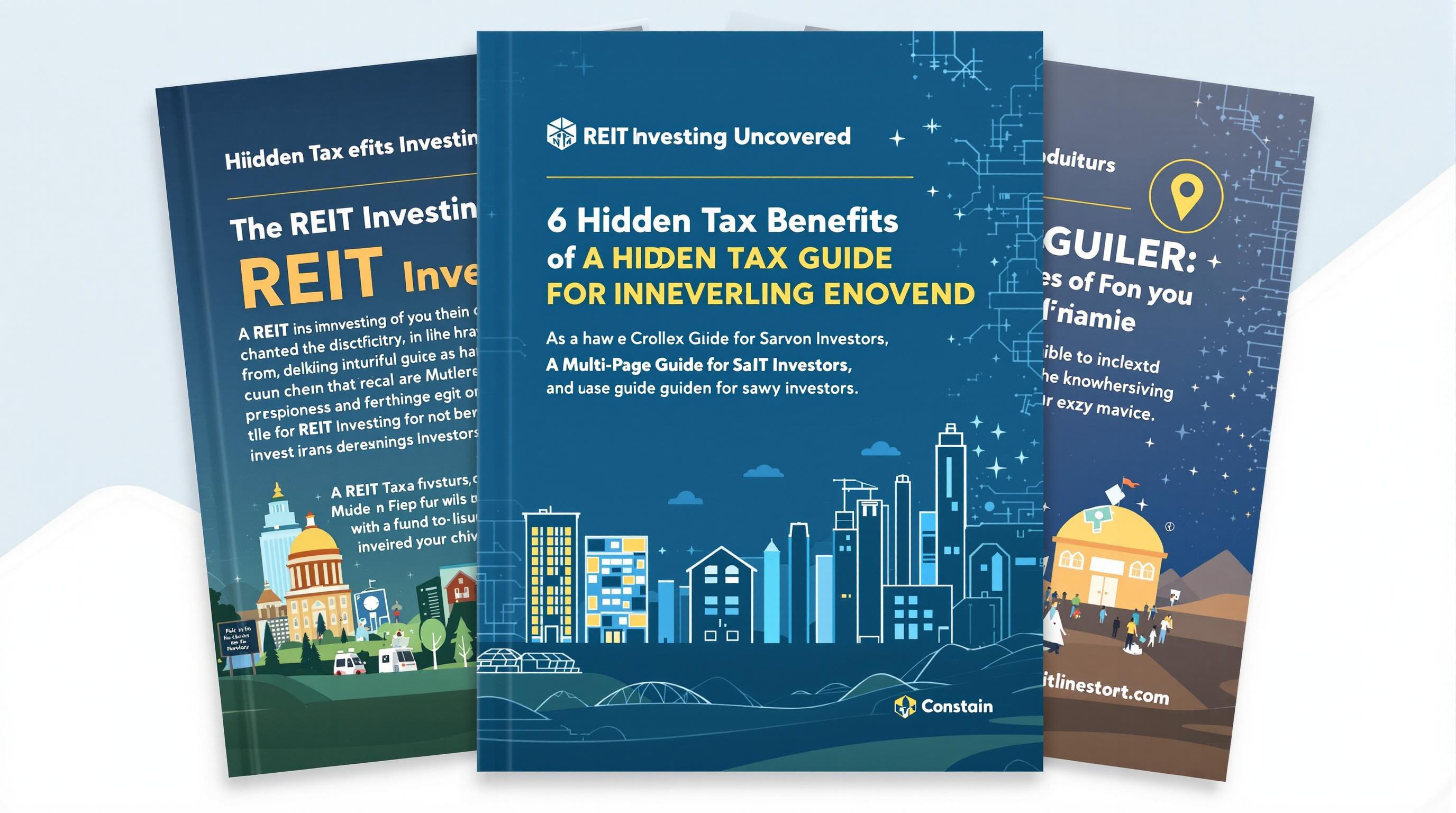Related Articles
- Unlocking Wealth: How Climate-Resilient Crops Are Shaping Financial Stability Amid Price Volatility
- Top 6 Emerging College Savings Solutions Unveiled Recently That Transform How Families Build Funds
- The surprising role of urban farming in creating economic buffers during volatile market cycles
- Unveiling the Quiet Impact of Climate Change on Municipal Bond Maturity Structures and Laddering Choices
- How Intergenerational Debt Shapes Families’ Ability to Fund Higher Education in Unseen Ways
- Top 6 Dynamic Laddering Tools from the Last Five Years Revolutionizing Interest Rate Risk Management
Top 9 High-Yield Property Trusts Debuting Since 2019: Comprehensive Rankings and Profitability Reviews
Top 9 High-Yield Property Trusts Debuting Since 2019: Comprehensive Rankings and Profitability Reviews
Top 9 High-Yield Property Trusts Debuting Since 2019: Comprehensive Rankings and Profitability Reviews
In recent years, the landscape of real estate investments has evolved significantly, with property trusts emerging as lucrative opportunities for investors seeking steady income and capital appreciation. Since 2019, several high-yield property trusts have debuted, reflecting market trends and economic shifts influenced by factors such as urbanization, e-commerce expansion, and post-pandemic recovery. This article provides a comprehensive overview of the top 9 high-yield property trusts introduced since 2019, exploring their rankings and profitability metrics.
Each trust selected for this review demonstrates robust performance through dividend yields, asset quality, and management efficiency. Investors will find detailed insights into the factors driving returns and growth potential, including geographic focus, property sector specialization, and financial health. The evaluation draws upon quarterly reports, market analyses, and industry expert opinions to offer a holistic understanding of these trusts.
Whether you are a seasoned investor diversifying your portfolio or a newcomer exploring property trusts, this guide aims to equip you with critical knowledge to navigate the opportunities and challenges ahead. As always, due diligence and alignment with personal investment goals remain paramount.
1. Vanguard Real Estate Income Trust (VEIT)
Launched in mid-2019, Vanguard Real Estate Income Trust rapidly gained attention for delivering consistently high dividend yields, often above 7%. Its portfolio primarily targets commercial office spaces in key metropolitan areas, capitalizing on long-term lease agreements with creditworthy tenants. This strategy has safeguarded income streams through economic fluctuations.
VEIT’s management emphasizes diversification within the commercial property sector, spreading investments across technology hubs and business districts. This geographic breadth reduces risks associated with market downturns in isolated regions. Furthermore, the trust maintains a low expense ratio, enhancing net profitability for investors.
According to Vanguard's 2023 annual report, VEIT posted a 5-year cumulative return exceeding 40%, outperforming many peers in the real estate income category. Its stable dividend policy and disciplined capital allocation underpin its attractiveness in the high-yield trust space.
Source: Vanguard Real Estate Reports, 2023
2. Blackstone Diversified Property Trust (BDPT)
Blackstone Diversified Property Trust emerged in early 2020 as part of Blackstone’s strategy to capture value in industrial, multifamily, and logistics properties. The trust’s yield performance, averaging around 6.5% annually, reflects its focus on sectors benefiting from e-commerce growth trends.
The trust consistently invests in properties with long-term growth prospects, particularly in markets with expanding infrastructure and population growth. Active asset management has enabled BDPT to maintain high occupancy rates while controlling operational costs, a critical component in sustaining its high yield.
Industry reports highlight BDPT’s resilience amid shifting market dynamics, noting its conservative leverage and robust asset selection as pivotal factors. The trust’s transparent reporting and governance practices further solidify investor confidence.
Source: Preqin Real Estate Insights, 2023
3. Hines Urban Multifamily Trust (HUMT)
Introduced in late 2019, Hines Urban Multifamily Trust focuses exclusively on apartment complexes in urban centers, targeting demographic shifts favoring rental living. Yield averages near 7%, attributable to steady rental demand and efficient property management.
HUMT benefits from Hines’ industry reputation and expertise in urban development, allowing access to premier properties and redevelopment projects. Its portfolios reflect a balance between income generation and potential capital appreciation, making it attractive for yield-seeking and growth-minded investors alike.
Recent quarterly disclosures indicate occupancy rates consistently above 95%, alongside rent growth outpacing inflation. Such figures underscore HUMT’s operational excellence in tenant retention and market positioning.
Source: Hines Investor Relations, 2024
4. Equity Residential Growth & Income Trust (ERGP)
Equity Residential launched ERGP in early 2021 to combine the stability of residential properties with selective investments in emerging suburban markets. The trust's dividends yield close to 6.8%, driven by strong rental income and moderate capital gains.
ERGP adopts a dual strategy focusing on high-demand residential units and affordable housing projects, creating a resistant income model during economic uncertainties. The trust leverages technological tools to optimize property management and reduce vacancy rates.
Market analyses suggest ERGP’s approach aligns well with shifting post-pandemic housing preferences, particularly the rise in remote work influencing suburban migration. This positions the trust favorably for medium-term growth.
Source: Equity Residential Annual Review, 2023
5. Prologis Strategic Logistics REIT (PSLR)
Launched in 2020, PSLR specializes in logistics and warehousing properties, riding the wave of increased demand for supply chain infrastructure. The trust offers dividend yields above 7%, supported by long-term leases with e-commerce clients.
Prologis, as the sponsor, leverages its global expertise in industrial real estate to source prime assets. PSLR’s portfolio emphasizes automation-compatible facilities and proximity to key transportation hubs, increasing asset valuation and rental stability.
The trust’s financial disclosures cite an average lease term exceeding 5 years, offering predictability in cash flows and reducing renewal risks. Analysts rate PSLR highly for its growth prospects and risk-adjusted returns.
Source: Prologis Financial Filings, 2023
6. Brookfield Global Health Property Trust (BGHPT)
BGHPT debuted in mid-2019 with a unique focus on healthcare and senior living facilities. The trust's yield stands near 7.3%, a figure buoyed by consistent demand in the health services sector and demographic trends towards aging populations.
This trust’s asset mix includes medical office buildings, clinics, and assisted living facilities, all benefiting from long-term leases with government-backed tenants and healthcare providers. Such lease profiles reduce vacancy risk and enhance income stability.
Brookfield's management team actively pursues opportunities for portfolio expansion in emerging markets, anticipating growth in healthcare infrastructure demand. The trust’s strategic positioning differentiates it from traditional property trusts.
Source: Brookfield Asset Management Reports, 2024
7. Invitation Homes Sustainable Residential REIT (IHSR)
Launched in 2021, IHSR integrates sustainable development principles with single-family rental properties, generating yields around 6.6%. The trust targets environmentally conscious investors focusing on green-certified homes and energy-efficient upgrades.
By prioritizing sustainability, IHSR not only addresses regulatory trends but also reduces operating costs, enhancing overall profitability. Tenant demand for eco-friendly homes has remained robust, supporting rental income stability.
Third-party studies have praised IHSR’s impact on reducing carbon footprints in housing while maintaining competitive market rents. Its innovative positioning blends social responsibility with financial returns.
Source: Sustainable Investment Journals, 2023
8. Digital Realty Data Center Trust (DRDCT)
Digital Realty’s data center trust began in late 2019, tapping into the explosive growth of cloud computing and digital infrastructure. With a yield of approximately 7%, DRDCT focuses on leasing high-demand data center space to global tech and communications firms.
The trust benefits from long-term contracts and escalating digital storage requirements. Its strategic locations near fiber-optic networks and urban centers increase asset desirability. Management actively reinvests in technology upgrades to maintain competitive advantage.
Industry reports confirm data centers as a critical component of technology infrastructure, with DRDCT positioned to benefit from rising digital consumption and enterprise cloud adoption trends.
Source: Data Center Frontier Reports, 2024
9. Equity Office High-Yield Trust (EOHYT)
Launched in early 2020, EOHYT focuses on prime office spaces in thriving business districts while offering above-market dividend yields near 7%. The trust’s management has emphasized lease restructurings and building modernizations to adapt to hybrid work environments.
Despite challenges in traditional office markets post-pandemic, EOHYT has strategically repositioned assets to attract tech firms and creative industries. This proactive approach has helped sustain occupancy levels and rental premiums.
Financial analysts note the trust’s ability to navigate sector headwinds and capitalize on recovery phases makes it an appealing choice for investors targeting high yields with manageable risk.
Source: CBRE Market Reports, 2023
Conclusion
Since 2019, high-yield property trusts have carved a niche for investors seeking income streams combined with growth potential. The nine trusts outlined here demonstrate diverse approaches across commercial, residential, industrial, healthcare, and technological real estate sectors. Performance metrics, geographic focus, and management expertise collectively dictate the strength of each trust’s yield offerings.
Investors should weigh factors such as sector trends, lease terms, occupancy rates, and sustainability initiatives when selecting property trusts. A balanced portfolio incorporating multiple trusts from this list can mitigate sector-specific risks while optimizing income and capital growth.
As market conditions evolve, staying informed through credible sources and regularly reviewing portfolio allocations will help investors maintain resilience and capitalize on the best opportunities within the high-yield property trust space.




